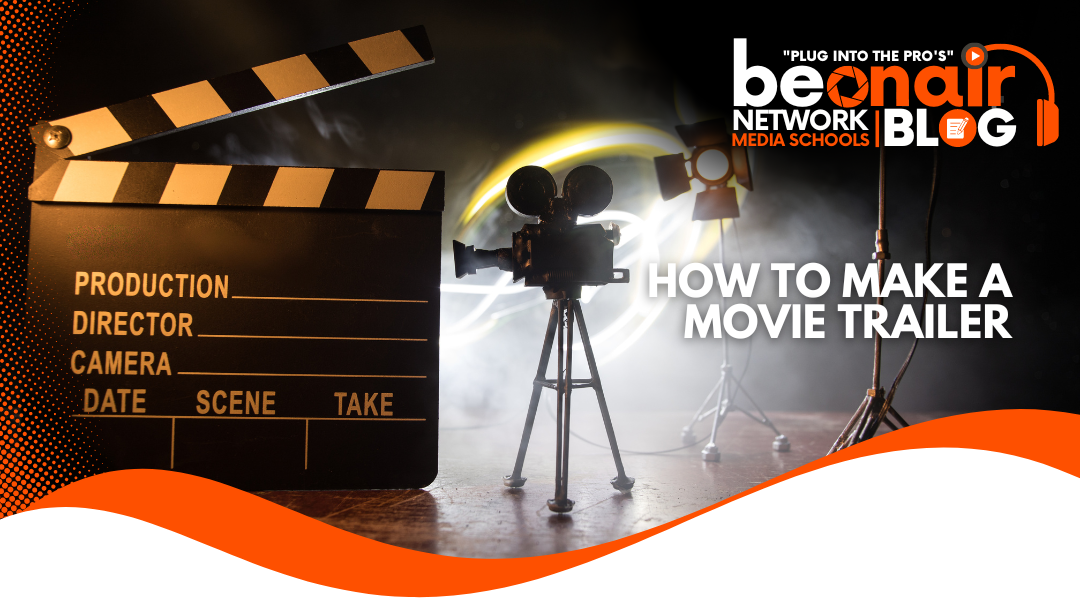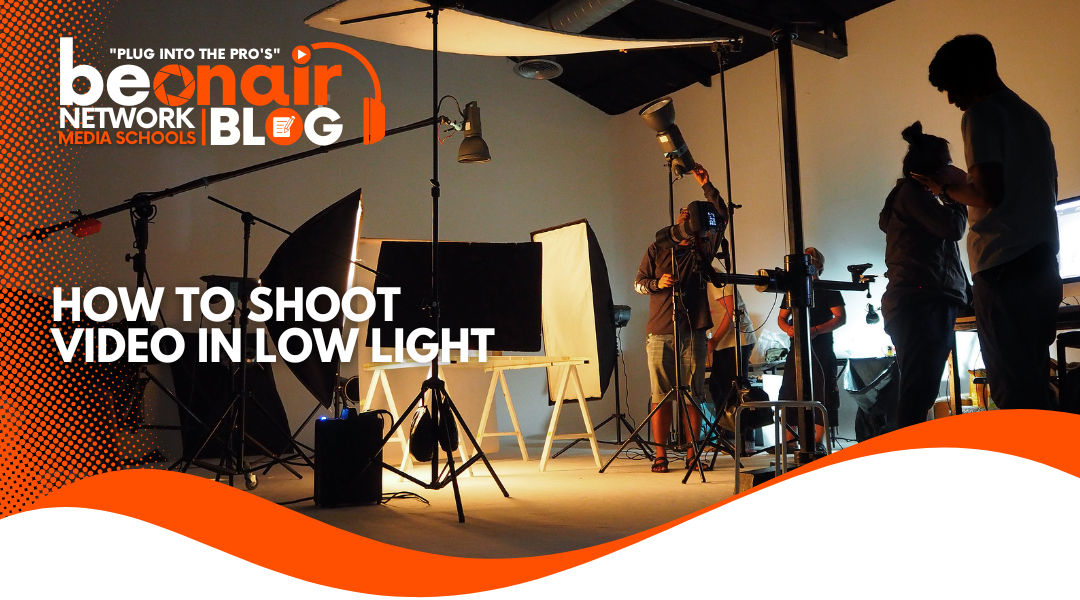
Essential Radio Broadcasting Equipment

Updated Oct. 11, 2022
Producing your own Internet radio broadcast can be quite simple these days, but it isn’t easy to do if you don’t have the right equipment. When you use quality gear, you have the right tools to produce a professional on-air broadcast and master the skills necessary to have a long and successful career in radio broadcasting.
Whether you are looking to set up a simple Internet broadcast or want to start your own FM radio station, here’s a look at some high-quality radio station equipment to make it happen.
Studio & Production Equipment
Your on-air broadcast requires content, and that’s where production equipment comes into play. When most people imagine a radio station, they visualize its studio. This is where the actual recording takes place, and where many of the most iconic pieces of radio broadcast equipment live.
A microphone
A microphone is necessary to capture and record voices, music, sound effects, and other audio. The microphone translates all audio into electrical impulses and is often mounted on a microphone arm to save space.
An audio console
An audio console is used to record, equalize, and optimize your program. Sometimes referred to as a sound desk, radio panel, or sound panel, this is the interface that controls exactly what is heard on air. Each of the console’s channels represents a single input, and the fader/slider can be manipulated to adjust the incoming signal.
There are analog audio consoles and digital audio consoles, but radio consoles, in general, are specifically designed to be easy for on-air talent to use. In an analog console, the physical audio is actually transmitted through its circuitry. In contrast, digital audio consoles function as a “remote control” for the mix engine (typically located within the rack room).
Software for playout, automation, and word processing
Nowadays, there are many affordable software programs that work exceedingly well when you want to produce your own radio broadcast program. Automation software makes it significantly simpler to operate as a one-person production crew – so you can produce, record, and even edit a radio broadcast program all on your own.
You also will need a good word-processing program to write your scripts and help ensure your broadcasts maintain a consistent theme, tone, and style.
Level meters
A level meter allows the panel operator or on-air talent to monitor the audio volume, so they can ensure it is neither too quiet or too loud at any point. In most cases, there will be multiple level meters set up for the varying points in the signal chain.
There are also some radio stations that utilize phase meters in addition to level meters. A phase meter works to identify mono content, so you can detect issues with source material and avoid problems with the stereo image.
Studio monitor speakers
Monitor speakers enable you to hear what’s going on without needing to wear headphones. Most studios use high-quality monitor speakers so that any issues with sound quality are easy to pinpoint.
Cue/preview speaker
The preview speaker is an optional addition that lets the radio host hear the audio that isn’t going to air (like the feed from the audio editor). Using a separate speaker serves as an extra layer of security to make sure that preview audio isn’t ending up on-air.
Headphones
When a microphone is turned on, a studio’s monitor speakers are automatically muted. So, you’ll need headphones to hear the content that will be going to air.
Rack Room Equipment
A radio station’s “rack room” is where you’ll find the bulk of the equipment. Also known as an equipment room, data center, or master control room, this space contains the large electrical devices, computers, and other key pieces. In other words, it’s where you’ll keep anything and everything that makes noises that could disrupt your broadcast.
Computer
It’s probably fairly obvious that a computer is a staple piece of equipment for radio broadcasting. There are many options when it comes to the best computers for radio broadcasting, and much of it comes down to personal preference.
Many modern computers can perform a wide variety of broadcast functions, including:
- Automation/playout
- Monitoring
- Audio logging
- Routing control
- File sharing
- Dead air detection
- Emergency audio playback
- Music scheduling
- Profanity delay
- Audio processing
In many cases, the right computer can help you streamline your broadcasting equipment needs.
Studio delay (“profanity delay” or “7-second delay”)
If you want to do live broadcasts, you also should consider a studio delay, which commonly provides seven seconds for radio show producers to eliminate unwanted content, such as swearing. That helps to ensure the FCC and local listeners won’t want to shut you down for unsavory content that you never intended to be aired.
An audio mixer (mix engine)
A mixer for sound editing and mixing is required for use with a digital audio console. Make sure that your selected mix engine is compatible with your audio console since the controls protocols are usually unique to each manufacturer.
Rackmounts
Don’t underestimate the usefulness of rackmounts to keep your equipment stored safely.
Protection units
Protection units that prevent damage from electrical surges, lightning strikes, and other electrical problems that can destroy your studio equipment.
Transmission Gear
You can’t broadcast your radio program if you don’t have a way to transmit your content. With the Internet, obviously, you simply can transmit via your computer and broadband lines. But when you are looking for true on-air radio broadcasting, you’ll need transmission equipment to make it happen.
A transmitter/studio link
A transmitter/studio link connects a radio studio with the transmitter site so that audio can be sent to the TX site. There are various types of links to choose from, each one with its own pros, cons, and specific characteristics. Oftentimes, a station will have multiple links (in several different formats) so they can minimize the risk of a break-in transmission.
Transmission lines
Transmission lines send a signal from one location to the next without significantly degrading signal quality.
An antenna array
Although it’s possible to transmit FM broadcasts using a single antenna, that’s not usually an ideal set-up. An antenna array (additional antennas) can translate to added power without the need for a larger transmitter.
Other Assorted Gear
A truly professional broadcast is produced in a sound room equipped properly to help ensure a smooth and flawless broadcast. If you want to take your broadcast quality to the next level, it might be time to invest in some high-end equipment.
On-air lights
On-air lights let others know when to be quiet because the program is rolling and you are broadcasting live.
Headphone amps
Headphone amps help you and other on-air talents to hear yourselves and others without other annoying outside noises or distractions. That helps to maintain the program’s flow and lets you know exactly what your listeners are hearing on their radio receivers.
Talent panel
For a radio broadcast that frequently welcomes guests, talent panels are a must. Even though the primary host/panel operator has access to key controls via the audio console, guests also need to be able to manage their headphone levels, microphone, and cough mute. Usually, you’ll see talent panels mounted near each guest microphone, with features that include a headphone jack and XLR (microphone) connector.
Pursue a Career as a Radio Professional
Having the right gear is a terrific first step toward producing a high-quality radio program. But you also need training and experience to become a truly polished professional.
At the BeonAir Network of Media Schools, with campuses located in Miami, Chicago, Colorado, and Ohio, students learn through a dynamic combination of classroom instruction and hands-on, in-studio experiences. With the essential skills and knowledge gained through our Radio & TV Broadcasting Program, you have the opportunity to gain a competitive edge in the fast-paced, rapidly-evolving industry.
Whether you are an audiophile and love producing your own Internet program or are looking for a rewarding career in broadcasting, the right training, education, equipment, and experience can help make it happen for you! For more information about how to choose the best radio broadcast equipment – and develop the skills you need to put it to excellent use – connect with our team today!
Contact Us (Zap)
Form to request info







